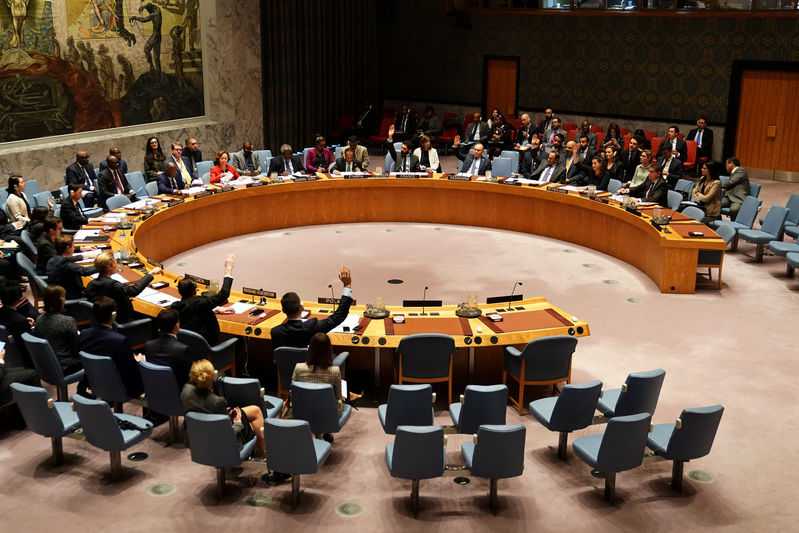U.N. approves Yemen truce team after U.S., British tussle
23 December, 2018

The United Nations Security Council on Friday unanimously approved the deployment of a U.N. advance team to monitor a ceasefire in Yemen’s Hodeidah region after days of wrangling that pitted the United States against ally Britain.
After a week of U.N.-sponsored peace talks in Sweden, the Iranian-aligned Houthi group and Saudi-backed Yemen government foes agreed last week to stop fighting in the Red Sea port city of Hodeidah and withdraw forces. The truce began on Tuesday.
The Security Council authorized U.N. Secretary General Antonio Guterres to deploy — for an initial 30 days — an advance monitoring team. That team, led by retired Dutch Gen. Patrick Cammaert, is due to arrive in Yemen shortly, said a U.N. spokesman, adding that the personnel will not be uniformed or armed.
The council also asked Guterres to submit proposals by the end of the month on substantive monitoring operations for the ceasefire and redeployment of forces; support for the management of and inspections at the ports of Hodeidah, Salif and Ras Issa; and strengthening of the U.N. presence in the Hodeidah region.
Guterres is also required to report weekly to the Security Council on implementation of the resolution, which endorses the ceasefire deal agreed in Sweden.
“It’s vital that the parties follow through on their commitments,” British U.N. Ambassador Karen Pierce told the council after the vote.
The Security Council has been wrangling over the British-drafted text since Monday and in an unusual move the United States, unhappy with Britain’s efforts, came up with its own version on Thursday. Traditionally countries propose amendments to an initial draft rather than coming up with their own text.
When asked about the negotiations with the United States, Pierce told reporters: “This is what diplomacy is meant to be about so I’m glad it worked on this occasion.”
U.S. warns of Iran ‘misdeeds’
The U.S. draft text, which was seen by Reuters, mirrored the British language focused on the ceasefire deal and authorizing U.N. support. However, Washington had stripped out language on the humanitarian crisis.
The resolution adopted on Friday retained some of the British language on the aid crisis. The conflict has pushed impoverished Yemen to the verge of famine with millions relying on food aid. More than 80 percent of Yemen’s imports used to come through Hodeidah port, but that has slowed to a trickle.
The resolution calls on the government of Yemen and the Houthis to remove bureaucratic obstacles to the flow of aid and commercial goods, including fuel, and ensure all the country’s ports are functioning.
The United States had also wanted to condemn Iran for breaching an arms embargo on Yemen, but Russia objected, diplomats said. Iran has repeatedly denied accusations that it has supplied weapons to Yemen’s Houthis.
“We hope that in the days to come Iranian missiles or misdeeds do not shatter the promise of peace and bring us back to where we were before. But if that does happen, this council may come to regret this omission,” U.S. diplomat Rodney Hunter, the political coordinator of the U.S. mission to the United Nations, told the Security Council after the vote.
In order to reach a consensus Britain had to cut language on the “need for transparent, credible and timely investigations into alleged violations of international humanitarian law” and for those responsible to be held accountable. The U.S. draft did not include that language.
A Saudi-led military coalition intervened in Yemen in 2015 to back government forces. The United Nations and Western countries have criticized the coalition for killing a high number of civilians, including children.
Western countries, including the United States and Britain, have provided arms and intelligence to coalition members.
